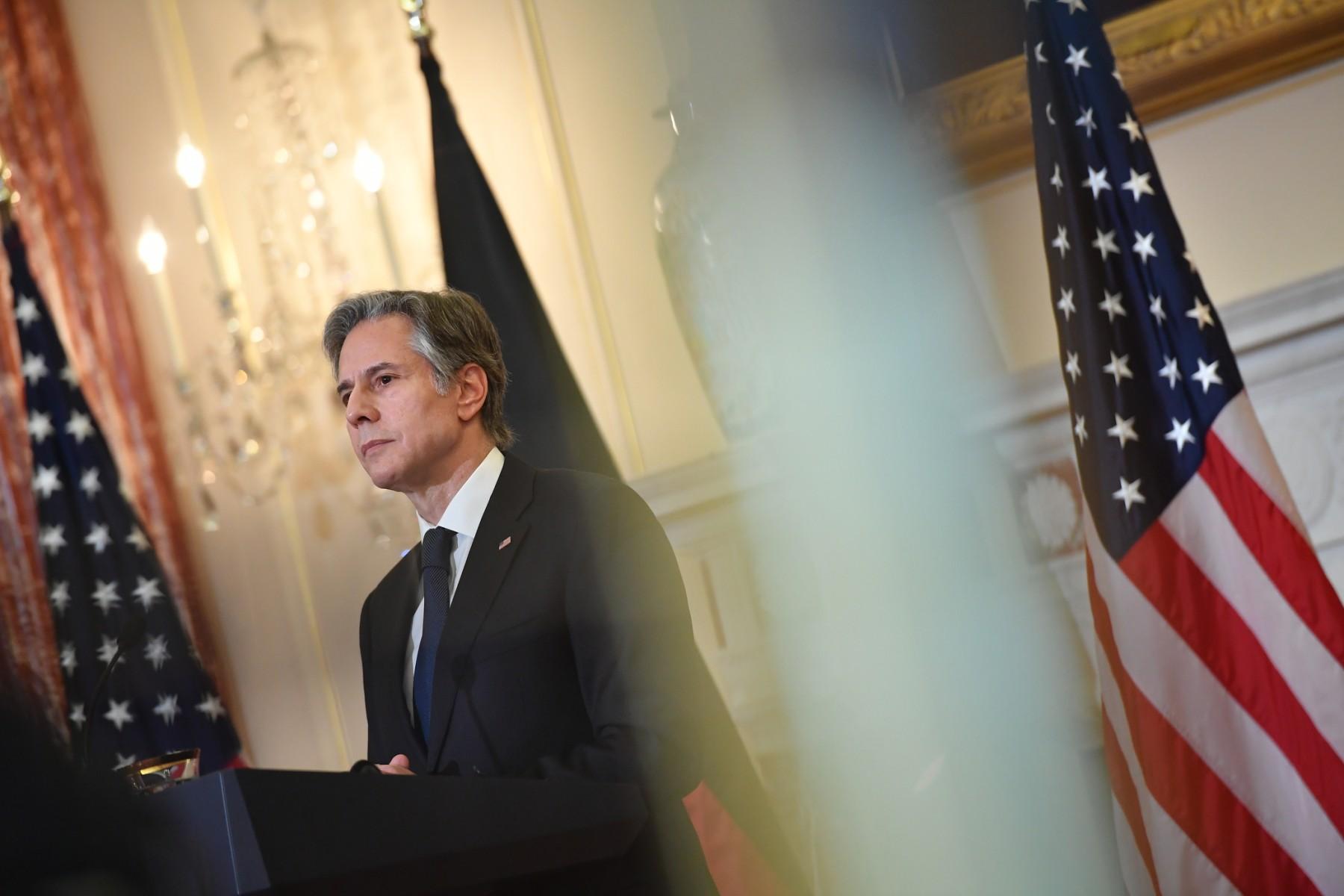Blinken says no Russia progress with ‘gun to Ukraine’s head’
Russia has amassed tens of thousands of troops on the Ukrainian border and wants next week's discussions to take up its demands for security guarantees against expanding the Nato alliance.
Top US diplomat Antony Blinken said Wednesday that upcoming talks with Russia will not succeed so long as there is a “gun to Ukraine’s head” as Western leaders stepped up warnings of major consequences for an invasion.
Days ahead of US-Russia talks in Geneva, Germany’s foreign minister visited Washington and the EU foreign policy chief travelled to Ukraine in a show of support for the embattled nation.
Russia has amassed tens of thousands of troops on the Ukrainian border and wants next week’s discussions to take up its demands for security guarantees against expanding the Nato alliance.
If the talks are “going to show real progress, that will require de-escalation,” secretary of state Blinken told a joint news conference.
Pointing to Russia’s hopes for headway on points such as arms control, Blinken said, “It’s very hard to make actual progress in any of these areas in an atmosphere of escalation and threat with a gun pointed to Ukraine’s head.”
“Russia should be in no doubt that further military aggression against Ukraine would have massive consequences and severe costs in response,” Blinken said.
German Foreign Minister Annalena Baerbock, paying her first visit to Washington since the new Social Democratic-led coalition took power, agreed on the need for “severe consequences” if Russia attacks Ukraine.
The US and Germany have been at loggerheads for years over Nord Stream 2, a major pipeline which is set to open soon and ship Russian gas directly to Europe’s largest economy.
“From our perspective, it’s very hard to see gas flowing through that pipeline, to become operational, if Russia renews its aggression,” Blinken said.
Drawing criticism at home, President Joe Biden’s administration has declined to impose sanctions over Nord Stream 2, saying it was virtually complete.
But the administration last year reached an agreement in which Germany promised aid to Ukraine and warned Russia against using the pipeline for geopolitical advantage.
Baerbock, asked if Germany was ready to cancel the pipeline, said only that the new government backed last year’s understanding.
The new government “agreed that we take effective measures together with our European partners should Russia use energy as a weapon,” she said.
Support on the frontline
Russia’s movements have raised fears of a repeat of 2014 when Moscow seized the Crimea peninsula and a pro-Russian insurgency broke out in eastern Ukraine that has since claimed more than 13,000 lives.
EU foreign policy chief Josep Borrell traveled to the eastern Lugansk region and vowed the bloc’s “full support to Ukraine’s independence, sovereignty and territorial integrity.”
“Any military aggression against Ukraine will have messy consequences and severe costs,” he said.
Ukrainian Foreign Minister Dmytro Kuleba said he was glad the EU foreign policy chief had a chance to visit the frontline and “feel the consequences of the conflict with his own eyes.”
Both Borrell and Baerbock called for Europe to be fully involved in discussions affecting the continent, a stance backed by Blinken.
After the Geneva talks, Russia will hold meetings with the Nato alliance and Organisation for Security and Cooperation in Europe, a Cold War forum between the West and Moscow.
Russian President Vladimir Putin denies planning to attack the neighbouring country, saying the troop movements are to defend Russia against an encroaching Western military.
In sweeping security demands presented last month, Moscow said Nato must not admit new members, including Ukraine, and called for the United States to be barred from establishing new bases in former Soviet republics.
European powers have made clear they are not enthusiastic about Nato accession pleas by Ukraine and Georgia but the West does not want Russia to be seen as dictating the decision.
Biden has warned Putin directly in two phone calls against any invasion. Measures could potentially include sanctions, greater arms shipments to Ukraine or even attempts to sever Russia from the international banking system.
The 2014 crisis broke out when Russia was angered by the toppling of a Ukrainian government that had resisted pressure to move closer to the West.
Subscribe to our newsletter
To be updated with all the latest news and analyses daily.
